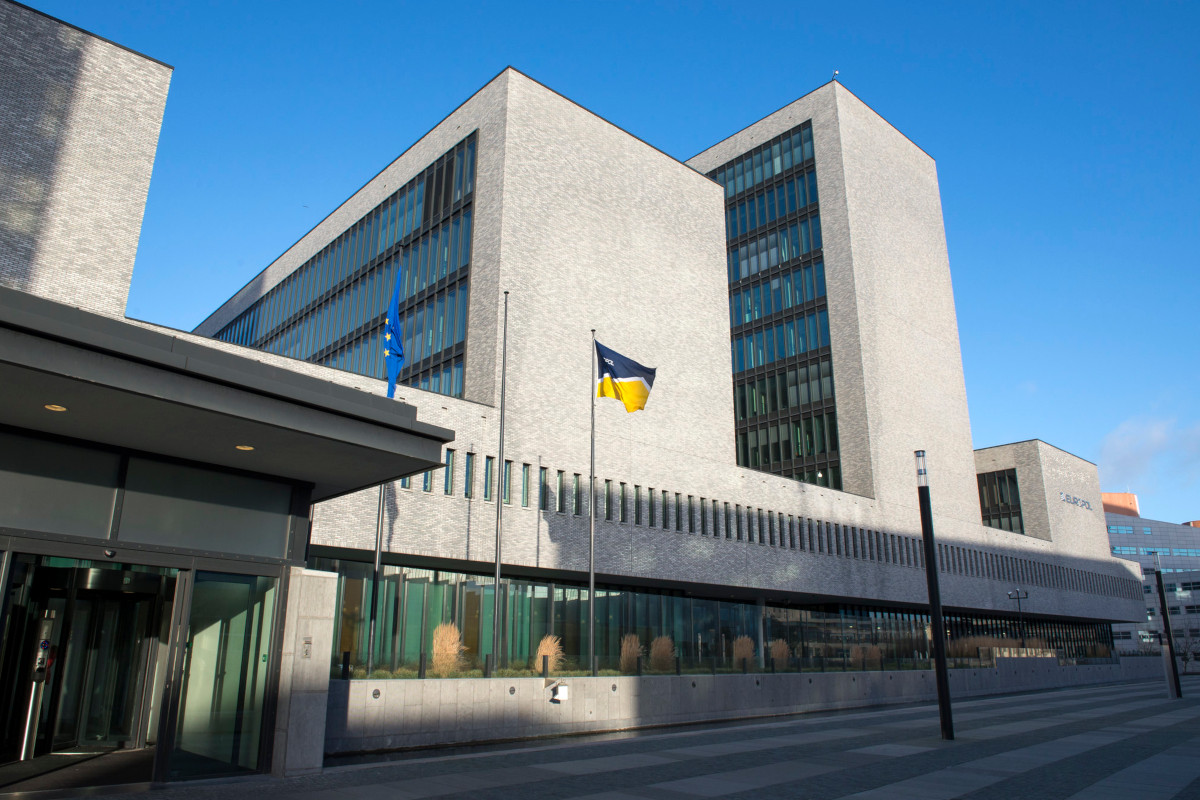EU: Intelligence-sharing plan extended from asylum-seekers to "any foreigner involved in a migratory procedure"
Topic
Country/Region
28 March 2024
In 2022, EU member states began discussing ways to increase the amount of information sent to intelligence agencies on "the timing and state of progress of applications for international protection lodged by individuals posing a terrorist threat". Now the intention is to cover not just asylum-seekers, but "any foreigner involved in a migratory procedure." According to the Belgian Presidency, "security concerns go beyond the mere scope of applicants for international protection, as they also cover other people who apply for the legal right to stay in Europe."
Support our work: become a Friend of Statewatch from as little as £1/€1 per month.

Image: Mark Deckers, CC BY-NC-ND 2.0
A discussion paper (pdf) circulated by the Belgian Presidency in mid-February recalls a set of Council conclusions from June 2022 (pdf), which called for increased national and EU-level cooperation between immigration and asylum authorities, on the one hand, and "counter-terrorism authorities" - likely to be intelligence agencies - on the other.
The aim of this initiative was "to improve CT [counter-terrorism] authorities’ knowledge of the timing and state of progress of applications for international protection lodged by individuals posing a terrorist threat and thus to enable appropriate measures to be taken against them."
A document circulated by the French Presidency in February 2022 (pdf) set out the scope of the plan, saying that the "competent services" should be able to find out:
"...in which Member State an application for international protection has been lodged by a migrant and to be able to obtain basic information on the progress status of this procedure. This would exclude, of course, any element linked to the substance of the case (invoked grounds, content of the interview, provided documents, etc.) In this sense, it seems important to allow some form of follow-up of the state of progress of asylum applications." [emphasis in original]
The document noted that "strengthening the follow-up of the state of progress of procedures would allow to better understand the administrative path of only those individuals whose behaviour represents a terrorist threat (this need would only concern a small number of cases at EU level)" (emphasis in original).
We are seeking information on the use of security and secrecy exceptions in immigration and asylum proceedings.
Find out more here.
The Belgian Presidency's plan is to expand the scope beyond this to cover "any foreigner involved in a migratory procedure":
"The exchange of information should concern any foreigner involved in a migratory procedure, be they applicants for international protection, people who do not or no longer have the right to stay or even people who apply for legal status."
In order to do so, the Presidency proposes three actions:
- mapping out existing arrangements, procedures and structures for cooperation and information exchange;
- identifying "possible good practices in this area"; and
- identifying "central contact points within the immigration and asylum authorities to further facilitate international cooperation and information exchange between Member States."
The establishment of these contact points should "facilitate, accelerate and strengthen the exchange of non-classified information by the competent authorities of the Member States on foreigners posing a terrorist threat or known for being radicalised."
The plan precludes the exchange of information between EU member state agencies and their counterparts from third states: "It goes without saying that there can be no international exchange of information between these different bodies," says the document.
However, given that member states may receive information from third states on individuals considered a security risk, it is possible that information gathered through this process will be transmitted back to those third states.
The Belgian Presidency also clarifies that it is counter-terrorism agencies that should receive information from immigration authorities, and not vice versa:
"Contact points within the immigration and asylum authorities only exchange information about the administrative situation of foreigners once they have been informed by the counter-terrorism authorities that they could pose a threat. Administrative information must be understood here as the identity of the foreigner involved, as well as information related to their administrative situation. The purpose is not to transfer information from counter-terrorism authorities."
The Presidency further notes that information exchange should be "based on the possibilities and limitations of national and European law, by which the Member States are bound, including the rules on the protection of personal data."
The document was up for discussion at a meeting of the Council's Terrorism Working Party in early March, where, as reported by Statewatch in February, the "role of climate change and environmental concerns in violent extremist and terrorist radicalisation in the EU" was also on the agenda.
The paper posed four questions for delegations at that meeting:
"How is the cooperation and exchange of information between immigration and asylum authorities and counter-terrorism authorities organised in your Member State? Are there specific procedures, working structures or consultation mechanisms in place for this?
Are there any good practices in your Member State within this domain that you would like to share?
Can you identify central contact points to further optimise the exchange of relevant information within your immigration and asylum authorities?
Do you have other proposals to strengthen the exchange of information?"
Documentation
- Belgian Presidency: Information exchange between counter-terrorism authorities and immigration and asylum authorities – Discussion paper (Council doc. 6146/24, LIMITE, 19 February, pdf)
- French Presidency: Improving the transmission of information between administrations in the follow-up of persons representing a terrorist threat (Council doc. 6247/22, LIMITE, 22 February 2022, pdf)
- Council conclusions on protecting Europeans from terrorism: achievements and next steps (9 June 2022, pdf)
Our work is only possible with your support.
Become a Friend of Statewatch from as little as £1/€1 per month.
Further reading

Statewatch is seeking information on secrecy and security exceptions in asylum and immigration cases
Individuals involved in immigration and asylum proceedings can face multiple barriers to a fair hearing: an unfamiliar or unknown language, a lack of legal aid, and limited support networks. There is also the possibility that secret evidence will be used to refuse their applications or deny them entry to the territory. To gather further evidence on the extent of this problem, and the possibilities that data protection law offers as a remedy, Statewatch has launched a questionnaire to gather evidence from affected individuals, lawyers and support groups.

EU counter-terror shopping list: sanctions against “radical rhetoric”, intelligence agencies in asylum proceedings
The Council of the EU is moving ahead with plans to allow the use of financial sanctions against "individual or entities promoting radicalisation and violent extremism that may lead to terrorism" within the EU, as part of wide-ranging conclusions on counter-terrorism that seek to promote cooperation between asylum authorities and intelligence agencies, and reassert the need for mass data retention and action against encryption.

EU: Europol and the Schengen Information System: new powers to propose "information alerts"
Europol will soon have the possibility to propose that EU member states enter "information alerts" on foreign nationals in the Schengen Information System law enforcement database, with a new law that is awaiting the approval of the Council and the Parliament.
Spotted an error? If you've spotted a problem with this page, just click once to let us know.
